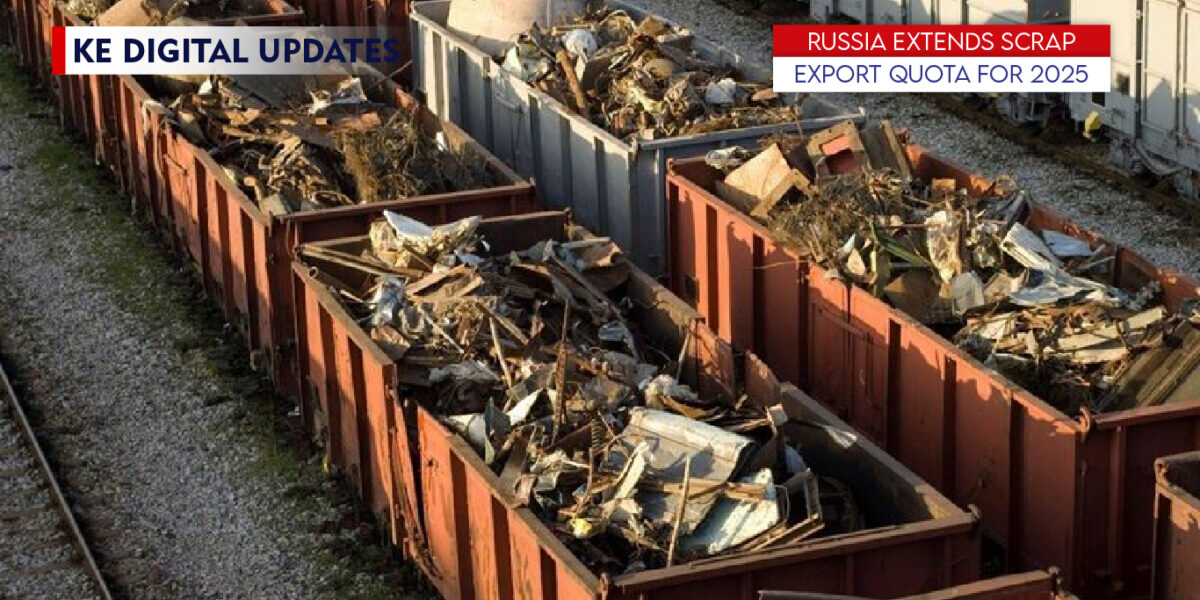Published on January 3, 2025
In a significant development, the Russian Federation has announced an extension of its ferrous waste and scrap export quota for 2025. This policy adjustment is expected to impact both domestic and international markets substantially. The extended quota, set at 1.5 million metric tons, will be effective from January 1st to December 31, 2025.
Details of the Quota and Duties
Under this new quota system, exports within the allocated 1.5 million metric tons will incur a 5% duty, with a minimum of €15 per metric ton. A steeper duty rate of 5% will apply for exports that exceed the quota but not less than €290 per metric ton. This tiered duty structure aims to balance the interests of different stakeholders in the industry.
Objectives Behind the Extension
The primary goal of extending the scrap export quota is to ensure a stable supply of raw materials for Russia’s metals industry. The government aims to support domestic enterprises in their production processes by controlling the amount of scrap that leaves the country. This measure is crucial for maintaining economic stability and fostering growth within the industry.
The metals industry is a significant contributor to Russia’s economy, and ensuring a steady supply of raw materials is essential for its continued success. The quota system helps to mitigate risks associated with fluctuating global scrap prices and availability, providing a predictable and stable environment for local businesses.
Impact on the Domestic Market
For domestic enterprises, the quota extension is likely to be beneficial. These businesses can plan their production activities more effectively with a guaranteed ferrous waste and scrap supply. This stability can lead to increased efficiency, reduced costs, and enhanced competitiveness in both local and international markets.
Moreover, the duty structure within the quota serves as an incentive for domestic processors to maximize the use of available scrap. By keeping more scrap within the country, Russia can support its recycling efforts and reduce the need to import raw materials, further strengthening its metals industry.
International Reactions and Consequences
On the front, extending Russia’s scrap export quota may lead to various reactions. Countries that rely on importing Russian ferrous scrap might experience supply shortages or increased costs due to the higher duties on excess exports. This could prompt them to seek alternative scrap sources, potentially reshaping global trade dynamics.
However, the quota system allows international traders to engage with Russia under the established framework. By understanding and navigating the new regulations, they can continue to do business while adapting to the changing landscape.
Conclusion
Extending Russia’s ferrous waste and scrap export quota for 2025 is a strategic move aimed at bolstering the domestic metals industry. By regulating the export of these critical raw materials, the Russian government seeks to ensure a steady supply for local enterprises, support economic stability, and maintain competitiveness. While the impact on the international market remains to be seen, the new quota system underscores Russia’s commitment to fostering a robust and resilient metal sector.


